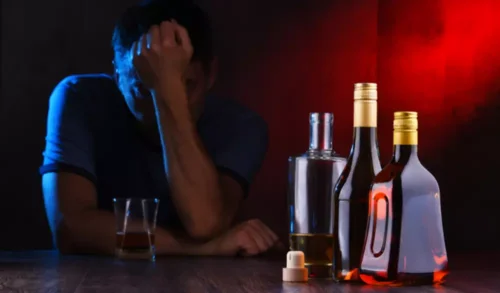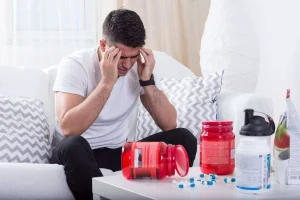Your Guide to the Stages of Alcohol Recovery

Alcohol withdrawal can cause many symptoms, some of which can be fatal. Emotionally, you may feel some anxiety or sadness about ending a chapter of your life and nervousness about the future. If you don’t already have a supportive network, you can make new connections by joining social media communities dedicated to alcohol-free living.
Dangers and Risks of Self-Detox
- Detox alone isn’t treatment, but it’s the first step to getting better for people who are dependent on alcohol.
- When detoxing from any substance, you can expect to experience withdrawal symptoms.
- The most commonly used stimulants are cocaine and amphetamines.
- You may not feel like being physically active or going outside, but a good walk can completely recharge your mental and emotional state.
Residential rehab, where you live at a center, usually runs for 1-3 months. These are good if you have a more serious problem and struggle to stay sober. Going outside and walking can do wonders if you are having a particularly rough time.
What vitamins and supplements help with alcohol withdrawal?
If you or someone you know needs to detox from alcohol, contact an addiction specialist to determine the best treatment options. Outpatient detox may not significantly disrupt a person’s everyday routines. After receiving treatment, people can go home and may not need to leave their jobs or school. Drinking https://ecosoberhouse.com/ heavily causes the body to become used to the constant effects of alcohol. The body craves alcohol to stimulate the release of neurotransmitters to provide a sense of well-being. Medical professionals at a recovery facility can provide treatment and medication for a safe and efficient detox.
- There are multiple health benefits you can experience when you start drinking less alcohol.
- Alcohol detox is the first step in treating alcohol use disorder (AUD).
- Attempting to detox from a substance dependence can be incredibly difficult to do on your own.
- For this reason, it’s important to undergo a medically managed alcohol detoxification at a professional alcohol addiction treatment center.
- Consider writing them down and keeping notes on hand, so you have a physical reminder to look at when you need it to help motivate you to stay the course.
Alcohol Detox Timeline—How Long Does Detoxing Take?
At the end of the day, one of the most important tools you have at your disposal is self-compassion. Instead of criticizing yourself for having a hard time or slipping up and having a drink, remember that no one’s perfect. What matters most is your ability to maintain an open, curious outlook as you learn what does and doesn’t work for you. Satisfying hobbies can distract you from wanting to drink, but they also help you relax — something everyone needs to do. What’s most important is looking at your drinking habits and finding a way to cut back that works for you.
Can I prevent alcohol withdrawal?
- Usually, some services will be covered, but how much you’ll have to pay out of pocket depends on your health plan and the program you choose.
- Intensive outpatient treatment involves a scheduled series of visits that are longer and more in-depth than a traditional outpatient program.
- You should plan to taper for between three and seven days depending on how much you’re used to drinking.
- Exercise releases endorphins into your brain, creating natural happy feelings within a person.
- The experience of withdrawing from alcohol can be uncomfortable and difficult.
Those with a wider circle of support have a better chance of staying sober. People who drink daily or almost every day should not be left alone for the first few days after stopping alcohol. Withdrawal symptoms can quickly go from a bad hangover to a serious medical situation. During the 12- to 24-hour time frame after the last drink, most people will begin to have noticeable symptoms. These may still be mild, or the existing symptoms might increase in severity. Take our free, 5-minute alcohol misuse self-assessment below if you think you or someone you love might be struggling with an alcohol use disorder (AUD).
Outpatient Treatment

Also, don’t get caught off guard thinking that since one craving has stopped, another one won’t come quickly. Often, cravings can come quickly and in succession of each other. You may also consider joining an online support group to help you feel less alone. Consider writing them down and keeping notes on hand, so you have a physical reminder to look at when you need it to help motivate you to stay the course.
How to safely taper off your alcohol consumption

The prognosis (outlook) for someone with alcohol withdrawal depends greatly on its severity. It’s important to be honest about your alcohol use — and any other substance use — so your provider can give you the best care. Recovery from AUD is marked by stages of abstinence, withdrawal, alcohol detox side effects repair, and growth. While the process may take several years, the outcome is a happier, healthier life where you have the freedom to fulfill your full potential. The challenge of this stage is to essentially develop and maintain healthy life skills that will serve you for a lifetime.

This can sometimes cause unpleasant withdrawal symptoms, and these symptoms can make it hard to stick with your recovery plan. There are a range of symptoms you can experience when you stop drinking. Tapering can help minimize these symptoms, but you might still experience some of them while your body adjusts to the lack of alcohol. Drinking excessive amounts of alcohol has a severe negative impact on a person’s health. Approximately 50% of deaths from liver disease involve alcohol.

